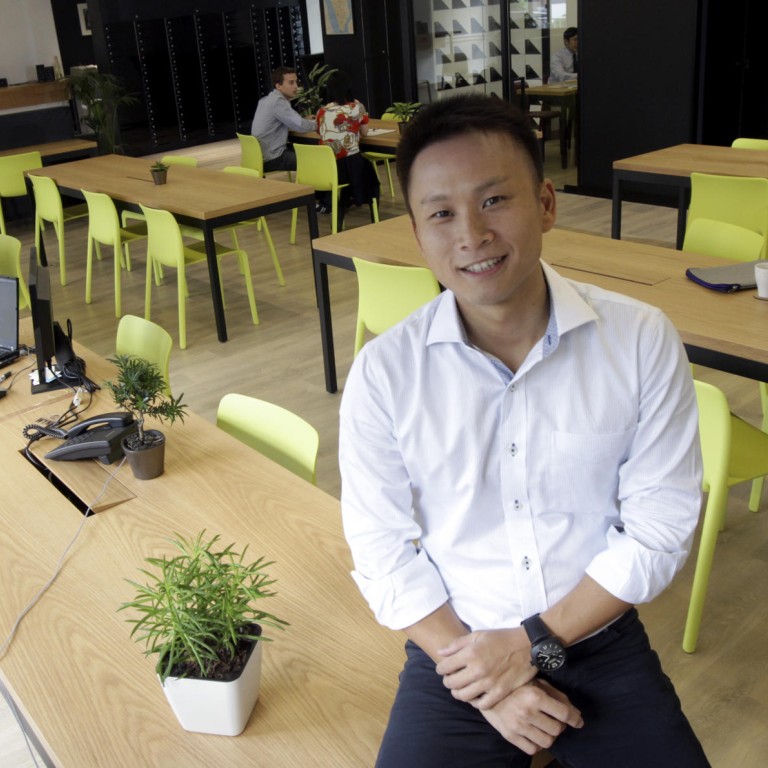
Entrepreneurs turn to co-working spaces as an alternative to offices
Entrepreneurs struggling with high rents hire desks in shared offices - and reduced costs aren't the only benefit for growing businesses
Setting up a business in Hong Kong is easy, but finding affordable office space is anything but. That has been the experience of young entrepreneurs who are turning to the city's new co-working spaces as an alternative.
Co-working spaces are open-plan offices rented to individuals who work alongside one another but independently. Rent is comparatively cheap and terms are flexible. Fixed desks can be rented by the month, and a six-hour pass costs as little as HK$100.
By contrast, prime office space in Central costs HK$105 per sq ft a month, second only to St James's in London, according to property services firm Jones Lang LaSalle. And such is the demand that the city will face a shortage of up to 8 million sq ft by 2020, consultant Knight Frank predicts.
As a result, 10 co-working spaces have popped up across the city within the last two years, offering a combined 90,000 sq ft of space. The newest, Wynd, opened in Lan Kwai Fong in September.
"The co-working space is a very new concept in Hong Kong," co-founder Michael Ma said, adding that traditional workplaces, such as serviced offices, might not suit the new generation of app developers and online retailers.
Jennifer Barba, founder of a beauty website, has worked at Wynd every day for the past several weeks.
"I didn't want to be tied up with a long-term lease," Barba said. "If you want your own office space [in this location], it's going to cost you probably five times what I'm paying now, at least." Her monthly membership costs HK$3,500.
Retro Spot, another co-working space, is housed in an old factory in Quarry Bay. Membership starts at HK$2,200 per month or HK$180 a day.
Co-founder Bonnie Yip said she started leasing out space in April to split the rent on her 1,800 sq ft office, which rises each year. "Thirty per cent of the people that come in actually [usually] work at home," she said. "Co-working space allows them to be more productive [and achieve] a work-life balance."
CoCoon, one of the first and largest co-working spaces, opened in the middle of last year, covering 14,000 sq ft in Tin Hau. Membership costs HK$2,000 a month, and the orange desks, yellow bean bags and ping-pong table make it look like a Google office.
"Entrepreneurship is a lonely journey, but that does not mean one has to work at home by his or herself," co-founder Theodore Ma said.
Yip said new co-workers were introduced to everyone in the space and interaction was encouraged. "You never know if the person sitting next to you might be a client or someone that you can strategically partner with," Yip said, adding that she met her accountant at Retro Spot.
The office also employs a host who acts as a secretary, and the space holds networking events, seminars, workshops and mentorship programmes.
Support for young entrepreneurs is available, but start-ups still struggle in Hong Kong's finance-dominated economy.
"I think it's very, very difficult being a start-up in Hong Kong," said Yip, who has launched four herself. "There's not a lot of assistance from the government." She said the application process for government funding for SMEs could take up to a year, and even then it was not guaranteed.
Raising capital from the public is illegal in Hong Kong, which Wynd's Ma said was "fair and understandable" for big corporations, but start-ups might not have the ability to afford private fundraising. The US passed a law in September to let start-ups raise money publicly and he believed the city should follow. "If Hong Kong wants to encourage this playing field, we should review the legislation," Ma said.
